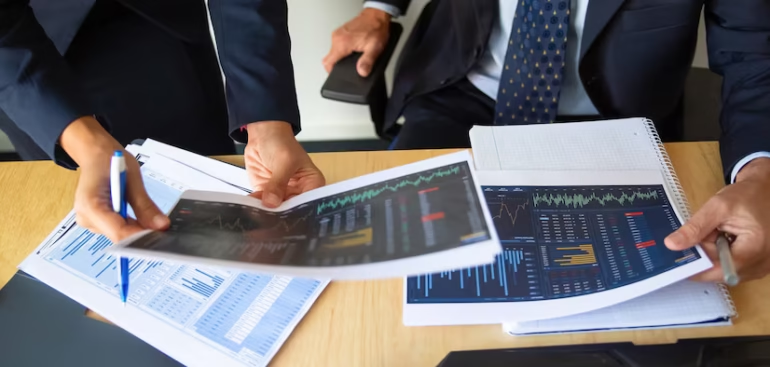Forensic Accounting Audit: Enhancing Financial Transparency and Security
In the ever-evolving world of finance, the importance of accurate and transparent financial records cannot be overstated. Forensic accounting audits play a critical role in ensuring that businesses and individuals maintain financial integrity. These audits are not only crucial for uncovering fraud but also for ensuring compliance with regulatory standards and securing financial futures. In today’s complex financial landscape, forensic accounting audits provide businesses with the tools they need to prevent and detect fraud, manage risks, and ultimately safeguard their financial health. One area where these audits have proven invaluable is in the field of securitization loan audits, which can help stop fraud before it becomes a significant issue. By leveraging forensic accounting techniques, these audits offer a comprehensive approach to identifying financial discrepancies and ensuring that all transactions are legitimate.
The Role of Forensic Accounting Audits in Financial Security
Forensic accounting audits are specialized audits conducted by professional accountants who investigate financial records to detect fraud, embezzlement, and other financial crimes. These audits are often used in legal disputes, corporate investigations, and situations where there is suspicion of financial wrongdoing. Forensic accountants possess the skillset to trace financial transactions, analyze records, and uncover any inconsistencies that could indicate fraudulent activities. The key purpose of a forensic accounting audit is to provide a thorough analysis of financial records to identify any errors, discrepancies, or suspicious activities that could affect the financial health of an organization or individual.
By using forensic accounting methods, auditors can detect fraudulent transactions, misappropriated funds, and financial statements that have been manipulated. They can also uncover hidden assets or liabilities that might not be readily apparent. Forensic accounting audits are instrumental in providing financial institutions, businesses, and legal entities with the information they need to take action against fraud and mitigate potential losses. In the case of securitization loan audits, forensic accountants can analyze loan documents, identify potential fraudulent practices, and ensure that the loan structure is legitimate, ultimately preventing financial institutions from taking on risky or fraudulent loans.
Securitization Loan Audits: A Vital Tool for Financial Protection
Securitization loan audits play a pivotal role in ensuring that the securitization process is conducted properly, with full transparency and integrity. These audits examine the process of pooling loans into securities and selling them to investors. Securitization is often a complex financial transaction, and without proper oversight, it can result in significant financial losses for both investors and institutions. By performing a forensic accounting audit on these loans, auditors can identify discrepancies or fraud within the loan pool, ensuring that only legitimate loans are included and preventing financial institutions from being exposed to unnecessary risk.
A securitization loan audit can uncover several types of issues that may affect the integrity of the loan pool. These issues may include misstated asset values, misrepresented borrower information, or incomplete loan documentation. In some cases, fraudulent loans may have been included in the pool, resulting in a higher risk for investors. Forensic accountants use their expertise to detect such issues, providing businesses and investors with the peace of mind that their investments are secure.
Furthermore, forensic audits on securitized loans help ensure compliance with regulatory standards and industry best practices. These audits verify that the loan servicing, underwriting, and documentation processes are compliant with relevant laws, such as the Dodd-Frank Act or the Truth in Lending Act. By maintaining adherence to these regulations, financial institutions can reduce the risk of legal disputes, penalties, or reputational damage.
Fraud Prevention: How Forensic Accounting and Securitization Loan Audits Work Together
One of the greatest benefits of forensic accounting audits is their ability to act as fraud stoppers. Fraud is one of the most serious financial threats faced by businesses today, and forensic accountants are highly trained to detect fraudulent activities that may go unnoticed by traditional auditors. In a financial environment where fraudulent transactions can lead to significant financial losses, forensic accountants play an essential role in identifying and stopping fraud before it escalates.
Forensic accounting audits in the context of securitization loan audits are particularly effective at preventing fraud. During these audits, forensic accountants analyze the entire loan portfolio to ensure that each loan is legitimate. They look for signs of inflated property appraisals, falsified borrower information, and misrepresented income or assets. By uncovering these types of fraudulent activities, forensic accountants can stop potential fraud before it causes significant damage to the financial institution or its investors.
The collaboration between forensic accounting and securitization loan audits provides an added layer of security. These audits serve as an early warning system for detecting fraud, allowing businesses and financial institutions to take immediate corrective action. By leveraging forensic accounting methods, these audits help reduce the overall risk of financial loss, mitigate reputational damage, and maintain the integrity of the financial system. Whether it’s identifying fraudulent transactions within a loan pool or uncovering manipulated financial statements, forensic audits offer invaluable protection against financial fraud.
How Forensic Accounting Audits Improve Financial Transparency and Accountability
Transparency and accountability are two of the most critical factors in maintaining financial stability and trust. Forensic accounting audits promote both of these qualities by ensuring that financial records are accurate, reliable, and free from fraudulent activity. The role of forensic auditors is to meticulously examine financial documents, uncover hidden discrepancies, and provide a clear and accurate picture of a company’s financial health.
In the context of securitization loans, forensic accounting audits ensure that all loan-related documents are accurate and compliant with applicable laws. By verifying that each loan is legitimate, auditors promote transparency, allowing investors to make informed decisions based on accurate financial information. Forensic audits also improve accountability by holding individuals and institutions responsible for their actions. When fraud is detected, auditors can trace the fraudulent activity back to its source and provide evidence that can be used in legal proceedings.
The transparency provided by forensic accounting audits fosters trust between investors, financial institutions, and clients. By ensuring that loan documentation is accurate and free from fraud, these audits enable businesses to maintain the confidence of their stakeholders. This is particularly important in the field of securitization, where investors need to trust that the loan pool they are investing in is legitimate and properly managed. The transparency brought about by forensic accounting audits allows financial institutions to maintain their reputation and attract more investors by demonstrating a commitment to financial integrity.
The Impact of Forensic Accounting Audits on Long-Term Financial Health
The impact of forensic accounting audits on long-term financial health cannot be overstated. By detecting and preventing fraud, ensuring regulatory compliance, and promoting transparency, forensic accounting audits help organizations secure their financial future. For businesses that rely on securitization loans, these audits provide the assurance that their loan pools are legitimate and free from risk. This, in turn, enables businesses to make more informed financial decisions and build stronger, more resilient financial strategies.
A forensic accounting audit is not just a one-time service—it’s an ongoing tool that can help businesses monitor their financial health over time. By regularly conducting forensic audits, businesses can continuously evaluate their financial practices, detect potential issues before they become significant problems, and take proactive steps to safeguard their assets.
Forensic accounting audits also provide valuable insights into areas where businesses can improve their financial management practices. For example, auditors may identify weaknesses in internal controls, inefficient processes, or gaps in compliance. Addressing these issues early on can help businesses avoid costly mistakes, reduce operational inefficiencies, and improve overall financial performance.
Conclusion: Secure Your Financial Future with Forensic Accounting Audits
Forensic accounting audits, particularly in the context of securitization loan audits, offer significant benefits for businesses looking to secure their financial future. These audits provide a detailed analysis of financial records, identify potential fraud, and ensure compliance with industry regulations. By uncovering discrepancies, stopping fraudulent activities, and promoting transparency, forensic accounting audits help businesses maintain their financial health and protect their investments. The collaboration between forensic accountants and securitization loan auditors provides a comprehensive approach to detecting and preventing fraud, safeguarding assets, and ensuring long-term financial stability.
For businesses that rely on securitization loans, forensic accounting audits are an essential tool for reducing risk and maintaining investor confidence. These audits ensure that loan pools are legitimate and free from fraudulent practices, giving investors the peace of mind they need to make informed decisions. The value of forensic accounting audits extends beyond just fraud detection—they also promote transparency, accountability, and long-term financial health.
If you’re ready to take control of your financial future and protect your investments, forensic accounting audits is the way forward. Contact us today at (877)-399-2995 or visit Mortgage Audits Online to learn more. Secure your financial future with confidence!







